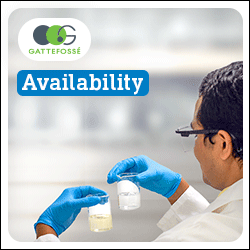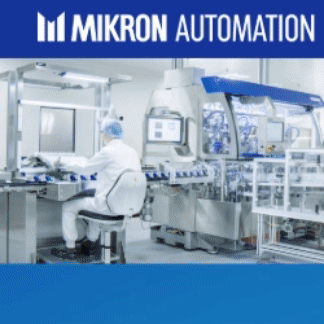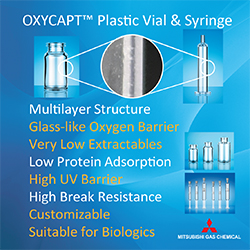Eterna Therapeutics Enters Option & License Agreement With Lineage Cell Therapeutics to Develop Hypoimmune Pluripotent Cell Lines for Multiple Neurology Indications
Eterna Therapeutics Inc. recently announced it has entered into an exclusive option and license agreement with Lineage Cell Therapeutics, Inc. for the development of novel induced hypoimmune pluripotent stem cell (iPSC) lines, which Lineage will evaluate for development into cell transplant therapies. The new cell lines to be developed by Eterna will support the potential creation of additional product candidates at Lineage, specifically for the treatment of certain central nervous system (CNS) disorders and other neurology indications. Eterna is the exclusive licensee of the key intellectual property underlying this collaboration.
“The cell therapy expertise demonstrated by Lineage makes them an attractive partner to deploy our mRNA cell engineering platform for the generation of novel gene-edited iPSC lines for neurological applications,” said Matt Angel, PhD, CEO of Eterna. “At Eterna, we have expertise in creating gene-edited iPSC lines using our extensively patented mRNA cell engineering technologies. We look forward to collaborating with the Lineage team on this project and working with them to develop these powerful tools for the generation of new, intelligently-engineered cell therapy product candidates in the CNS space.”
Under the Agreement, Eterna plans to conduct certain gene-editing activities and provide materials to Lineage for evaluation. The Agreement provides Lineage an option to obtain an exclusive license to utilize and sublicense the novel gene-edited cell lines for preclinical, clinical, and commercial purposes in the field of CNS diseases. A feature of the starting cell line is the targeted deletion of the beta 2 microglobulin (B2M)-gene, which is designed to reduce the immunogenicity of product candidates derived from the lines by inhibiting rejection by CD8+ T cells. Lineage expects this attribute will expand the edited cell lines’ overall utility, including for non-immune privileged or non-human leukocyte antigen (HLA) matched indications. Additional planned gene edits may further differentiate the cell line from others currently in use by competitors. Financial terms were not disclosed.
“This agreement provides the opportunity to combine insights obtained from our dry age-related macular degeneration program with new tools, to broaden the scope of our technology and may help deliver solutions for a wider range of diseases. The engineering of desirable properties into cell lines can also lead to treatments that are highly differentiated from our competitors,” added Brian M. Culley, Lineage’s CEO. “The initial cell lines we envision bringing into the clinic through this agreement will utilize proprietary mRNA based gene-editing technology developed by Eterna’s CEO, Dr. Matt Angel. It is natural that we would look to introduce aspects of gene editing, hypoimmunity, and additional pluripotent cell lines alongside our existing directed differentiation capabilities in the furtherance of our overall goal of becoming a comprehensive leader in cell therapy.”
Eterna Therapeutics is a preclinical-stage biotechnology company committed to realizing the potential of mRNA cell engineering to provide patients with transformational new medicines. Eterna has in-licensed a portfolio of over 100 patents covering key mRNA cell engineering technologies, including technologies for mRNA cell reprogramming, mRNA gene editing, the NoveSlice and UltraSlice gene-editing proteins, and the ToRNAdo mRNA delivery system from Factor Bioscience. NoveSlice, UltraSlice, and ToRNAdo are trademarks of Factor Bioscience. For more information, visit www.eternatx.com.
Lineage Cell Therapeutics is a clinical-stage biotechnology company developing novel cell therapies for unmet medical needs. Lineage’s programs are based on its robust proprietary cell-based therapy platform and associated in-house development and manufacturing capabilities. With this platform Lineage develops and manufactures specialized, terminally differentiated human cells from its pluripotent and progenitor cell starting materials. These differentiated cells are developed to either replace or support cells that are dysfunctional or absent due to degenerative disease or traumatic injury or administered as a means of helping the body mount an effective immune response to cancer. Lineage’s clinical and preclinical programs are in markets with billion dollar opportunities and include five allogeneic (“off-the-shelf”) product candidates: (i) OpRegen, a retinal pigment epithelial cell therapy in Phase 2a development for the treatment of geographic atrophy secondary to age-related macular degeneration, is being developed under a worldwide collaboration with Roche and Genentech, a member of the Roche Group; (ii) OPC1, an oligodendrocyte progenitor cell therapy in Phase 1/2a development for the treatment of acute spinal cord injuries; (iii) VAC2, a dendritic cell therapy produced from Lineage’s VAC technology platform for immuno-oncology and infectious disease, currently in Phase 1 clinical development for the treatment of non-small cell lung cancer; (iv) ANP1, an auditory neuronal progenitor cell therapy for the potential treatment of auditory neuropathy; and (v) PNC1, a photoreceptor neural cell therapy for the potential treatment of vision loss due to photoreceptor dysfunction or damage. For more information, visit www.lineagecell.com.
Total Page Views: 805













